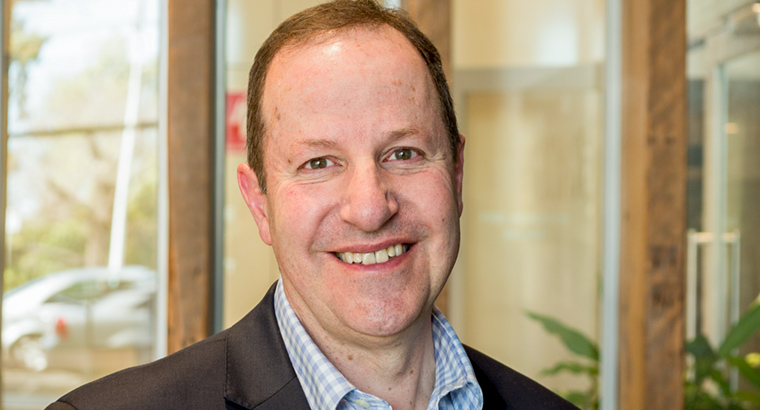Feature
Can they really say that? GPs and online reviews
Dr Steven Kaye talks about helping GPs on the thorny question of how to respond – or not – to patients’ online comments.
 While it will always be difficult for practitioners to alter or remove negative online reviews, a new RACGP factsheet is designed to help GPs navigate how best to deal with them.
While it will always be difficult for practitioners to alter or remove negative online reviews, a new RACGP factsheet is designed to help GPs navigate how best to deal with them.
‘The worst GP I have ever seen. I took my daughter to see him when she was very sick. He missed the diagnosis and was deliberately rough with her. It was like we were imposing on his time. I’d ask a taxi driver for medical advice before seeing this GP. Never see him if you are ill – or well.’
This review, which the GP found by googling his own name, was used as a case-study by medico-legal expert Dr Sara Bird in a previous article in Australian Family Physician.
Not only can this kind of online feedback can be personally distressing, it can also pose a threat to a doctor’s business. But as the number of online review platforms has grown – seemingly by the day –so has the likelihood of doctors receiving online comments from patients.
‘There are many online interactive sites where doctor reviews might appear – Google, Facebook, Yelp, RateMDs,’ Dr Steven Kaye, Deputy Chair of the RACGP Expert Committee – Practice Technology and Management, told newsGP.
‘In the majority of cases, the review is of a negative nature, potentially causing reputational damage for the doctor or practice.
‘These reviews are usually unvetted and can be posted by any member of the community, and as there is no “right of reply” the accuracy of the information and complaint cannot be verified.’
Many GPs in this situation understandably want to do something, from responding with their own comment to trying to get the review deleted.
But Dr Kaye warns there is usually little recourse available to doctors in the case of online reviews, and that trying to take action can often result in making a bad situation even worse.
‘While the temptation to respond to negative comments is very strong, it should be avoided,’ he said. ‘Inevitably, reputational damage will only be heightened by ongoing open debate and discussions.’
 Although the compulsion is strong to reply to negative online reviews, Dr Steven Kaye advises that it is best to avoid doing so.
Although the compulsion is strong to reply to negative online reviews, Dr Steven Kaye advises that it is best to avoid doing so.
Part of the reason doctors have such limited recourse is that many online reviews are posted anonymously. In cases where the author of the review is identifiable, there may be some more positive options – but these can have their own drawbacks.
‘If the author of the negative comments can be accurately identified, there is always the potential to legally attend to the reputational damage,’ Dr Kaye said.
‘However, the cost and inconvenience of doing so would rarely be rewarded with a legal victory in whatever form – financial compensation, retraction, etcetera.’
If comments or reviews have a significantly negative effect on a doctor’s business and the complainant is identifiable, mediation may be a possible avenue.
‘Offline discussion with a complainant in a calm and controlled manner to work through issues appropriately is preferable [to online discussion],’ Dr Kaye said.
Of course, not all reviews are negative – and positive ones come with their own temptations, as a potential way to boost business. But Dr Kaye very firmly emphasises that going down this path is also best avoided.
‘Usage of positive reviews is unacceptable. Testimonials are not legally allowed to be used for medical practitioner advertising,’ he said.
Under the definition of The Health Practitioner Regulation National Law, the term ‘testimonials’ includes reviews that make positive statements about clinical aspects of a doctor’s service.
Therefore, reviews can be used in advertising, but only if they are focused strictly on non-clinical aspects, such as car parking or the ambience of the waiting room. It is also important to remember that permission for use is required from the reviewer themselves and the website on which the review was originally published.
Finally, reviews can be edited but not to the point where they become deceptive or misleading. As a broad example, if the review stated ‘exceptionally long waiting times at this practice’, this could not be changed to read, ‘exceptional … waiting times’.
Navigating these issues can be difficult, distressing and can even have legal consequences for doctors. The RACGP has created an online resource to assist GPs in these situations, the Responding to online reviews factsheet.
‘It allows clarity to be developed with regard to response options for medical practitioners,’ Dr Kaye said.
The factsheet gathers information from relevant sources, including the Australian Health Practitioner Regulation Agency (AHPRA), and provides advice for a range of questions from GPs, such as ‘How should I respond to a review?’ and ‘Do I need to keep track of online reviews that might breach the law?’
There are two points in particular that Dr Kaye is especially keen to drive home.
‘The obvious temptation to respond to reviews should be avoided, and there is unlikely to be any way to alter online review comments,’ he said.
It seems that online reviews are something GPs will have to accept, to some extent, but the factsheet is designed help them do so with more clarity about how – or how not – to respond.
medicolegal Online reviews testimonials
newsGP weekly poll
Health practitioners found guilty of sexual misconduct will soon have the finding permanently recorded on their public register record. Do you support this change?